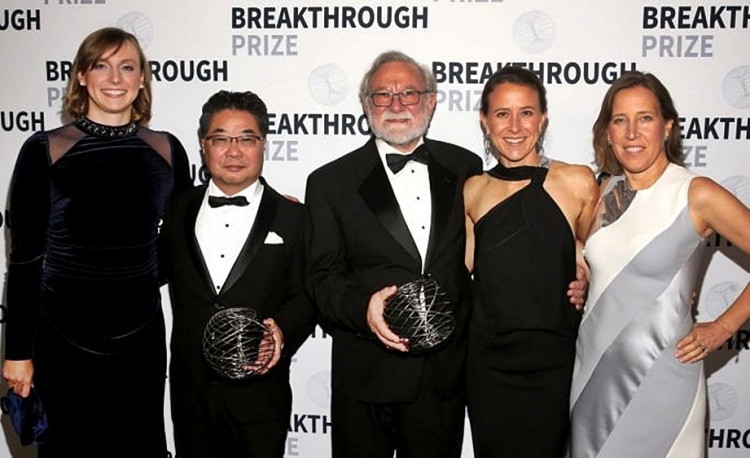The richest science prize on Earth, the Breakthrough Prize, has announced the winners of its Breakthrough Prizes in Life Sciences, Fundamental Physics, and Mathematics for 2019.
In addition to the seven main-stage prizes, a total of six New Horizons Prizes were awarded to seven physicists and five mathematicians for early-career achievements in their respective fields.
A total of $22 million was awarded to the Breakthrough Laureates. Each Breakthrough Prize is worth $3 million. Each New Horizons Prizes is worth $100,000.
The 2019 Breakthrough Prizes were awarded for a treatment for the leading genetic cause of infant death; super-resolution imaging and the discovery of a new kind of electronic material.
The Breakthrough Prize is bestowed in three categories by the Breakthrough Prize Board in recognition of scientific advances. These categories are: Breakthrough Prize in Life Sciences; Breakthrough Prize in Fundamental Physics and Breakthrough Prize in Mathematics
The 2019 Breakthrough Prize in Life Sciences was awarded to C. Frank Bennett and Adrian R. Krainer, Angelika Amon, Xiaowei Zhuang, and Zhijian "James" Chen.
The 2019 Breakthrough Prize in Fundamental Physics was awarded to Charles Kane and Eugene Mele.
The 2019 Breakthrough Prize in Mathematics was awarded to Vincent Lafforgue.
All Laureates, including Jocelyn Bell Burnell (who discovered pulsars), Recipient of 2018 Special Breakthrough Prize in Fundamental Physics, will be honored at Live Televised Ceremony on Nov. 4.
The winners were announced by the Breakthrough Prize Foundation and its sponsors - Sergey Brin, Priscilla Chan, and Mark Zuckerberg, Ma Huateng, Yuri and Julia Milner and Anne Wojcicki.
The 2019 Breakthrough Prize and New Horizon Prize recipients will be recognized at the seventh annual Breakthrough Prize ceremony, known as the "Oscars of Science." The event will be hosted by actor and philanthropist Pierce Brosnan on Nov. 4. The venue will be the NASA Ames Research Center in Mountain View, California.
The discoveries recognized this year include:
* In Life Sciences: a spectacularly successful gene therapy drug, Spinraza, that treats Spinal Muscular Atrophy, a deadly infant disease;
* Super-resolution imaging technology transcending traditional light microscopy. This technology reveals entirely new internal structures of cells;
* Revelation of a mechanism by which cells detect foreign DNA and trigger an immune response. This has important implications for cancer and autoimmune diseases
* An insight into how abnormal numbers of chromosomes are implicated in almost all cancers and can otherwise wreak havoc in the human body.
* In Fundamental Physics: mind-bending theoretical advances, including the discovery of a new class of electronic materials that simultaneously conduct and resist electricity. These electronic materials might prove transformative for quantum computing.
* In Mathematics: for groundbreaking and elegant contributions to the Langlands program in the function field case.
In addition to the seven main-stage prizes, a total of six New Horizons Prizes, worth $100,000 each, were awarded to seven physicists and five mathematicians for early-career achievements in their respective fields. Full citations can be found below.
The six New Horizons Prizes went to a pioneer in the field of multi-messenger astronomy; gravitational-wave researchers and scientists investigating the nature of gravity and the quantum realm.






